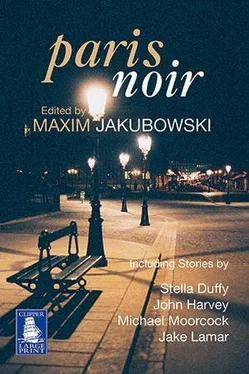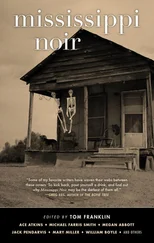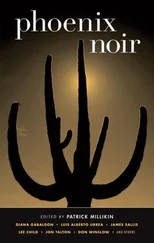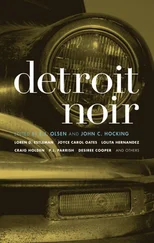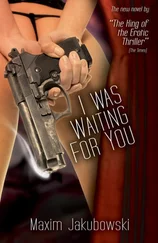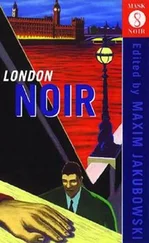Maxim Jakubowski - Paris Noir
Здесь есть возможность читать онлайн «Maxim Jakubowski - Paris Noir» весь текст электронной книги совершенно бесплатно (целиком полную версию без сокращений). В некоторых случаях можно слушать аудио, скачать через торрент в формате fb2 и присутствует краткое содержание. Жанр: Детектив, на английском языке. Описание произведения, (предисловие) а так же отзывы посетителей доступны на портале библиотеки ЛибКат.
- Название:Paris Noir
- Автор:
- Жанр:
- Год:неизвестен
- ISBN:нет данных
- Рейтинг книги:3 / 5. Голосов: 1
-
Избранное:Добавить в избранное
- Отзывы:
-
Ваша оценка:
- 60
- 1
- 2
- 3
- 4
- 5
Paris Noir: краткое содержание, описание и аннотация
Предлагаем к чтению аннотацию, описание, краткое содержание или предисловие (зависит от того, что написал сам автор книги «Paris Noir»). Если вы не нашли необходимую информацию о книге — напишите в комментариях, мы постараемся отыскать её.
Edited by Maxim Jakubowski, the stories range from quietly menacing to spectacularly violent, and include contributions from some of the most famous crime writers from both sides of the Atlantic, as well as the other side of the Channel.
Paris Noir — читать онлайн бесплатно полную книгу (весь текст) целиком
Ниже представлен текст книги, разбитый по страницам. Система сохранения места последней прочитанной страницы, позволяет с удобством читать онлайн бесплатно книгу «Paris Noir», без необходимости каждый раз заново искать на чём Вы остановились. Поставьте закладку, и сможете в любой момент перейти на страницу, на которой закончили чтение.
Интервал:
Закладка:
All of Val’s anger came out on stage, channelled first through a blistering ‘Cherokee’, then a biting up-tempo blues that seemed as if it might never end.
Patrick left Paris the next day, but not before he’d set up a recording date for Val and the trio at the Pathé-Magellan studio. The producer’s idea was to cut an album of standards, none of the takes too long and with Val sticking close to the melody, so that, with any luck, some might be issued as singles for the many jukeboxes around. Val always claimed to be less than happy with the results, feeling restricted by the set-up and the selection of tunes. Easy listening, I suppose it might be called nowadays, dinner jazz, but it’s always been one of my favourites, even now.
It was when we were leaving the studio after the last session that the pianist invited us to go along later with him and his girlfriend to hear Lester Young. Val was evasive. Maybe oui , maybe non. The one night off from Le Chat, he might just crash, catch up on some sleep.
‘I thought he was one of your favourites,’ I said, as we were heading for the Métro. ‘How come you didn’t want to go?’
Val gave a quick shake of the head. ‘I hear he’s not playing too well.’
Young, I found out later, had already been in Paris for several weeks, playing at the Blue Note on the rue d’Artois and living at the Hotel La Louisiane. A room on the second floor he rarely if ever left except to go to work.
Val had brought a few records with him from England, one of them an LP with a tattered cover and a scratch across one side: Lester Young, some fifteen years earlier, in his prime.
Val sat cross-legged on his bed, listening to the same tracks again and again. I poured what remained of a bottle of wine and took my glass across to a chair opposite the door; traffic noise rose and faded through the partly opened shutters, the occasional voice raised in anger or surprise; the sound of the saxophone lithe and muscular in the room.
When the stylus reached the run-off groove for the umpteenth time, Val reached over and set his glass on the floor. ‘OK,’ he said. ‘Let’s take a chance.’
As we entered the club and walked past the long bar towards the stage, a tune I failed to recognise came to an end and Young, caught in the spotlight, stared out, startled, as the applause riffled out above the continuing conversation. Up close, he looked gaunt and ill, dark suit hanging ragged from his shrunken frame, pain all too visible behind his eyes.
I took hold of Val’s hand and squeezed it hard.
The drummer kicked off the next number at a brisk clip, playing quick patterns on the hi-hat cymbals with his sticks before moving to the snare, a signal for Young, saxophone tilted at an angle away from his body, to begin. Within the first bars, he had dragged the tempo down, slurring his notes across the tune, the same stumbling phrases repeated and then left hanging as he stepped back and caught his breath, the spaces between his playing wider and wider until finally he turned away and stood, head bowed, leaving the guitarist to take over.
‘I Can’t Get Started’ was played at a funereal pace, the sound coarse and almost ugly: ‘Tea for Two’, one of the tunes Val had been listening to back in the hotel, started promisingly before teetering alarmingly off course; only a measured ‘There Will Never Be Another You’ rose from its foggy, thick-breathed beginning to become something that had moments of beauty between the self-doubt and misfingerings.
‘If I ever get into that state, poor bastard,’ Val said, once we were back outside, ‘promise you’ll take me out and shoot me.’
Yet in the succeeding weeks he went back again, not once but several times, fascinated despite himself, watching one of his idols unravel before his eyes. Then there was the time he went along and Young was no longer there; he’d cancelled his engagement suddenly and returned to the States. Two weeks later he was dead.
The evening he heard the news Val played ‘There Will Never Be Another You’, just the one chorus, unaccompanied, at the beginning of each set. The next day I walked into his room in the middle of the afternoon, and saw him sitting, half-naked on the bed, needle in hand, searching for a vein.
‘Oh, Christ, Val,’ I said.
He looked at me with tears in his eyes then slapped the inside of his thigh again.
I slammed the door shut, grabbed my coat and purse and ran out on to the streets. For hours I just walked, ending up who knows where. At a corner bar I drank two brandies in quick succession followed by a crème de menthe and was promptly sick. I wanted to go back to the hotel, pack my bag and leave. What the hell was I doing there? What game? What stupid dream? There was vomit on the hem of my dress and on my shoes.
When finally I got to the club it was late and Val was nowhere to be seen, just his saxophone, mouthpiece covered, on its stand. In answer to my unspoken question, the pianist just shrugged and, still playing, gestured with his head towards the street.
I heard Val’s shouts, muffled, coming from the alley that ran from close alongside the club down towards the quai Saint-Michel. Val lay curled in on himself, arms cradling his head, while two men took it in turns to kick him in the back, the chest, the legs, anywhere they could, a third looking on.
The sound of police sirens was too indistinct, too far away.
When someone helped me to my feet and I walked, unsteadily, to where Val still lay, unmoving, I thought that they had killed him. I thought he was dead.
For three days I sat by his bed in the hospital and held his hand. At night, I slept in the corridor outside, legs drawn up, on a chair. One of several broken ribs had come close to puncturing a lung. A week later I held his hand again as we walked in the hospital garden, with its bare earth and the stems of roses that had been cut back against the frost.
‘How are you feeling?’ I asked him.
‘Fine,’ he said, wincing as he smiled. ‘I feel fine.’
After that there were always dull headaches that prevented him from sleeping and sudden surges of pain, sharp as a needle slipped beneath the skull. Despite the months and years of osteopathy, his back never sat right again, nagging at him each time he played.
Valentine Collins, jazz musician. Born, 18 September, 1937. Died, 13 April, 1976. Thirty years ago. No need any longer to take the ferry to Calais and then the long, slow journey by train, and not caring to fly, I treated myself to Eurostar, first class. A slightly better than aeroplane meal and free champagne. The centre of Paris in less than three hours. Autumn. The bluest of blue skies but cold enough for scarf and gloves. I feel the cold.
The Métro from Gare du Nord to Saint-Michel is crowded with so many races, so many colours, Val’s face would not have stood out at all. Not one of us, Patrick had said, and it was true, though not in the way he meant.
The rue de la Huchette is now a rat-run of kebab houses and creperies and bars, so crowded, here and there I have to walk along the centre of the narrow street.
Le Chat Qui Pêche is now a restaurant and the sign has been taken down. For a while I think I might go inside and have a meal, reminisce a little with the waiter, if he has a little English to complement my meagre French. But it is enough to stand here at the pavement’s edge with people spilling round me, wondering, some of them, perhaps, what this old woman is doing, just standing there, staring at nothing in particular, none of them hearing what I hear, the sound of Val’s alto saxophone, a ballad, astringent, keening, ‘Every Time We Say Goodbye’.
BAR FIGHT by JASON STARR
Интервал:
Закладка:
Похожие книги на «Paris Noir»
Представляем Вашему вниманию похожие книги на «Paris Noir» списком для выбора. Мы отобрали схожую по названию и смыслу литературу в надежде предоставить читателям больше вариантов отыскать новые, интересные, ещё непрочитанные произведения.
Обсуждение, отзывы о книге «Paris Noir» и просто собственные мнения читателей. Оставьте ваши комментарии, напишите, что Вы думаете о произведении, его смысле или главных героях. Укажите что конкретно понравилось, а что нет, и почему Вы так считаете.
